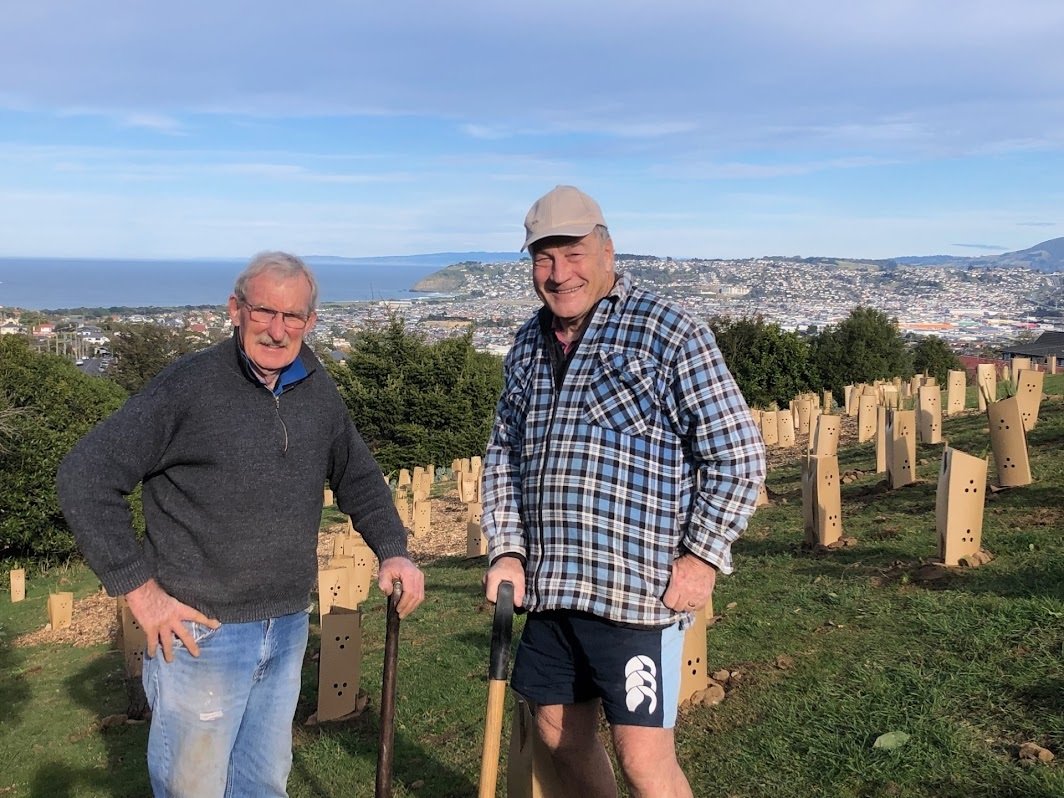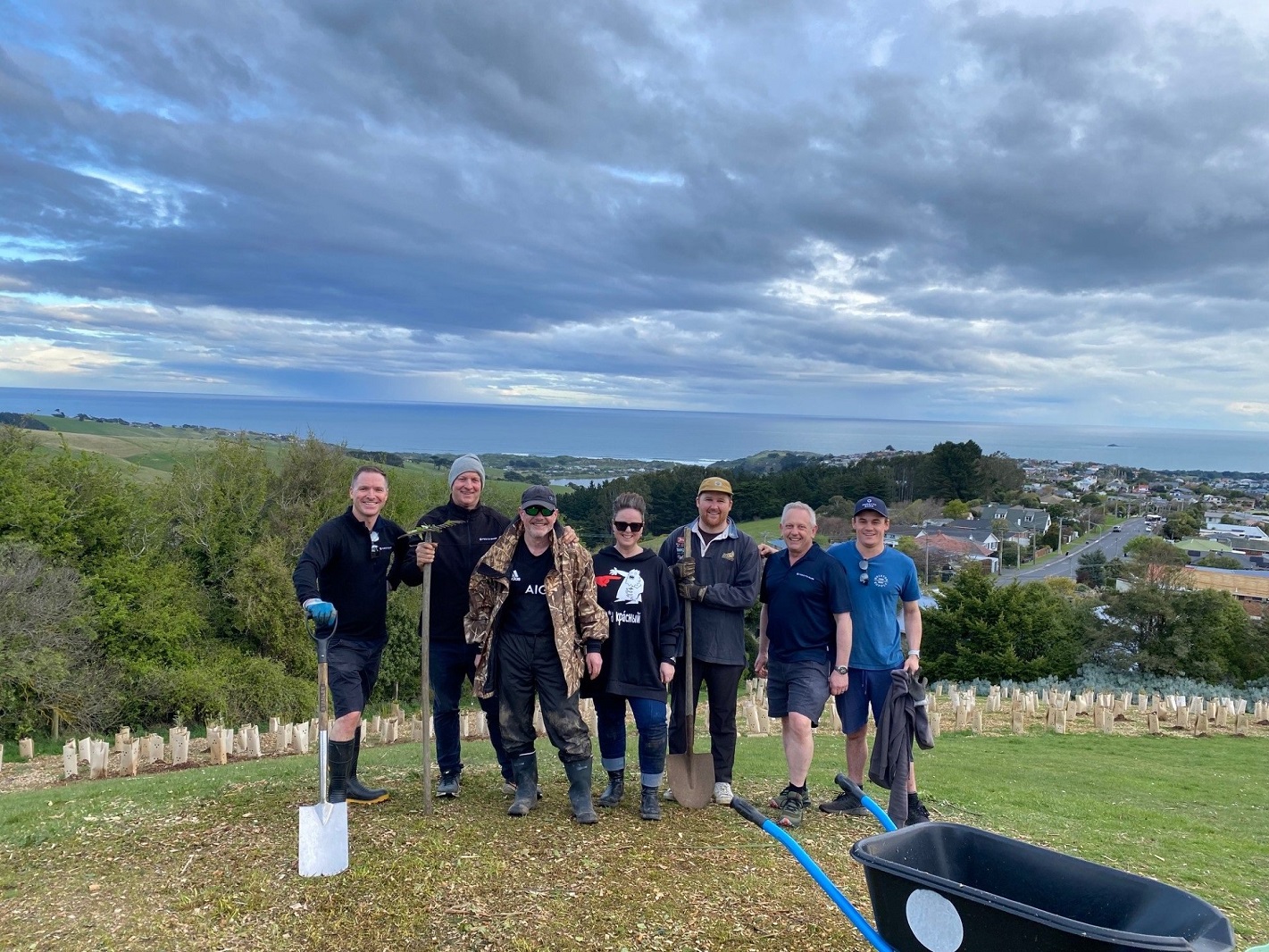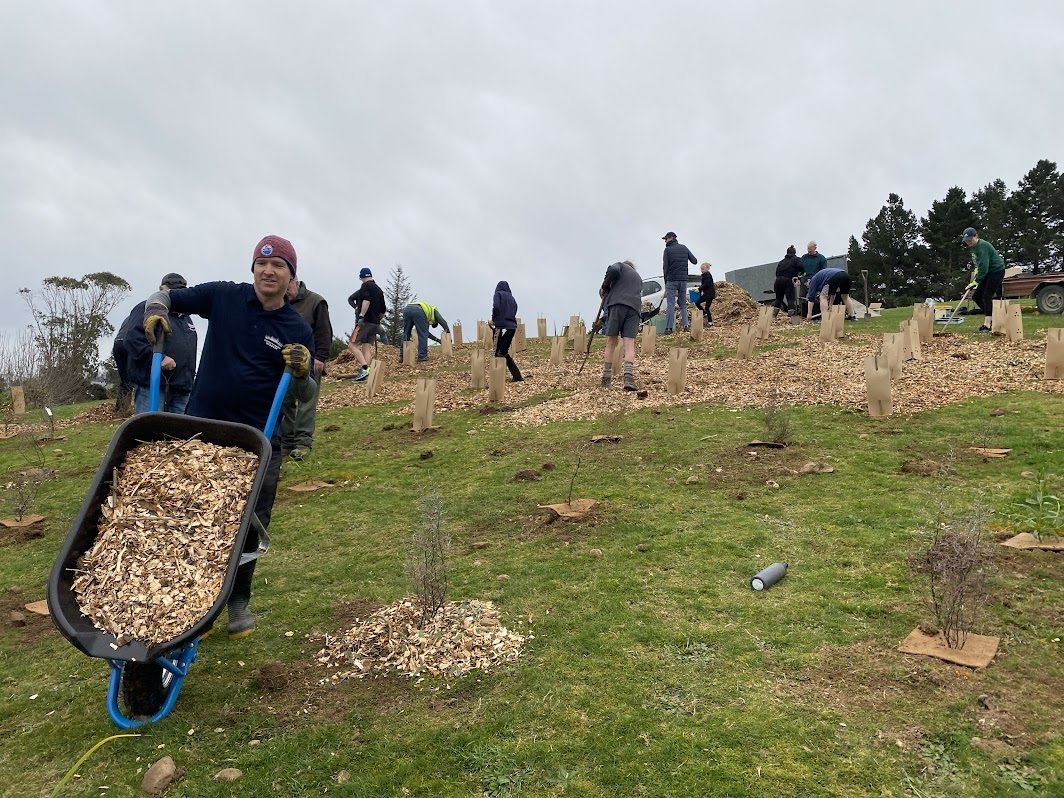
Developed by Rotary Dunedin in the 1950s at the Greenhills Reservoir site at Highcliff, the park is beloved of its neighbours and Waverley residents, but little known and rarely visited by others.
Now, Rotary Dunedin has rallied the city’s seven Rotary clubs, Rotaract, and other volunteers to tackle a major redevelopment of Rotary Park, with the aim of making it a great place to visit for locals and tourists alike.
Rotary Dunedin past president and Rotary Park Redevelopment project lead Gordon Tucker said the idea for the park upgrade was floated by him and Rick Wellington in 2021, after the club completed its West Harbour Beautification Project.
"We were looking for a substantial project to tackle and, with the club’s centenary coming up in 2023, it seemed like upgrading Rotary Park was the perfect task to undertake," Mr Tucker said.
Originally developed by Rotary Dunedin in the early 1950s, Rotary Park was opened in June 1956 to celebrate 50 years of Rotary International.
In recent years, Rotary Park had been under-developed. Facilities were in need of upgrading and there was plenty of space for new areas and tracks to be built for the community to use, he said.
"So we set about planning for a major, long-term programme of development, to transform Rotary Park into an enjoyable and accessible place for everyone."
Working with other Rotary clubs, Dunedin City Council Parks & Recreation staff, Mountain Biking Otago, and local businesses Monowai Ecological and Hudson Associates Landscape Architects, detailed plans were made and work began in February.
So far, more than 700 natives have been planted by combined Rotary clubs and Rotaract in Dunedin and Mosgiel, as well as by Trees for Families volunteers and Forsyth Barr staff.
Mr Tucker said planting would continue over the next two or three winters to complete the top section of the park, at an estimated cost of $30,000-$40,000. The plants have been provided by Ribbonwood Nurseries.
Mountain Biking Otago (MTB Otago) stalwart Hamish Seaton is a member of the Rotary Park Redevelopment committee.
He will work with MTB Otago volunteers to develop tracks at the site. These will include an upper park perimeter track, which will be gravel based and gently sloping — suitable for walkers, runners, cyclists, prams and wheelchairs, with good access to the carpark.

Track development is expected to begin in the next couple of months.
Mr Tucker paid tribute to MTB Otago for its support of the project and local businesses for pitching in with materials and equipment.
The shingle for the track development is being donated and supplied by Blackhead Quarries, with transportation by Fulton Hogan (on a discounted trucking rate). Delta is donating and supplying the mulch for weed suppression.
"We are very grateful to all the volunteers and business who are stepping up to help with the upgrade. It will really help to ensure the project is a success," Mr Tucker said.
The planting and track upgrades of Rotary Park form phases 1-3 of the project.
Phases 4-6 involve long-term goals such as building a shelter at the dog park and viewing platforms, installing barbecues, seating and picnic tables, signage and, eventually, art installations.
He said work was under way, led by Cr Kevin Gilbert, for a section of Rotary Park to be developed as a community garden. So far, 12 fruit trees had been planted.
"It’s great to have so many people and organisations involved in the project, and I think the results will be a spectacular transformation of a forgotten place into a wonderful destination," Mr Tucker said.
ROTARY PARK REDEVELOPMENT PROJECT
HISTORY:
Rotary Dunedin (formerly Rotary Club of Dunedin) celebrated its centenary last year. Club members were keen to tackle a showcase project celebrating the club’s long history in the city.
PHASE 1:

• The upper park perimeter track will be built by Hamish Seaton, plus Mountain Biking Otago and Rotary volunteers, later this year. It will be gravel based and gently sloping — suitable for walkers, runners, cyclists, prams and wheelchairs, with great views and easy access to the car park.
• Further development of the bike jump and skills track in the central park area, where there are existing tracks.
PHASE 2: Clear spaces and preparation
• Remove ground-cover and clear.
• Create contours for planting areas/identified plant species locations.
PHASE 3: Planting and ground cover
• Planting started in winter this year. Plants will be a mixture of low species to preserve harbour and seafront views, plus low to mid-height species for shelter and privacy. This will reduce lawn mowing and will extend the green belt to improve biodiversity.
PLANTING PROGRESS:
• So far this year, 700 natives have been planted by combined Rotary clubs and Rotaract in Dunedin and Mosgiel, as well a Forsyth Barr staff.
The total also includes natives planted through the Trees for Families project.
• The planting programme will continue during the next two to three winters to complete the top section of the park.
• The estimated cost of planting out the park is $30,000-$40,000.














